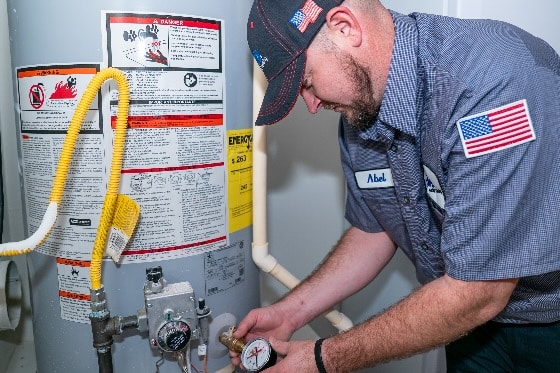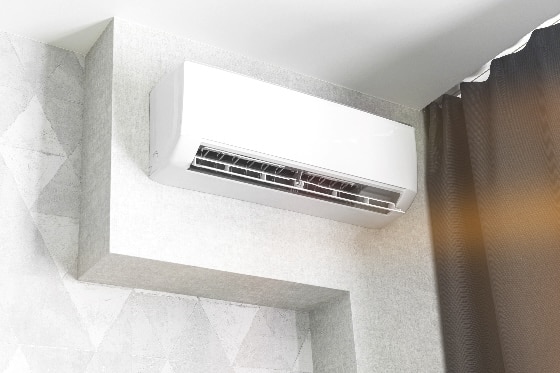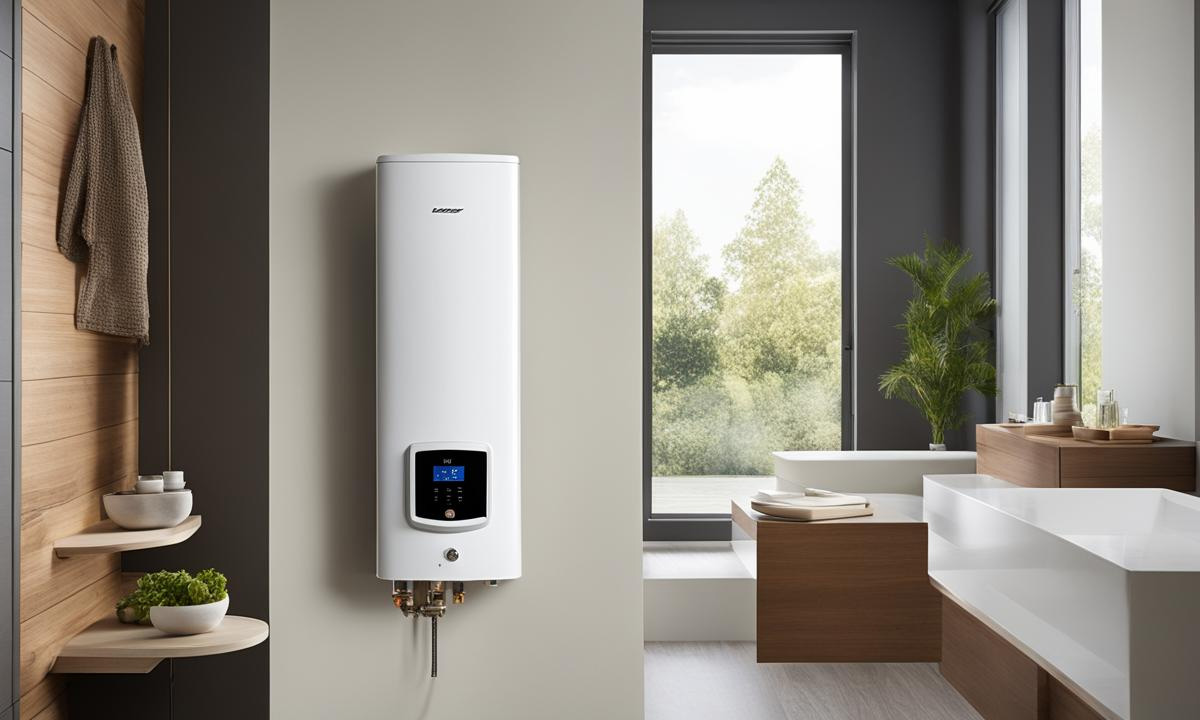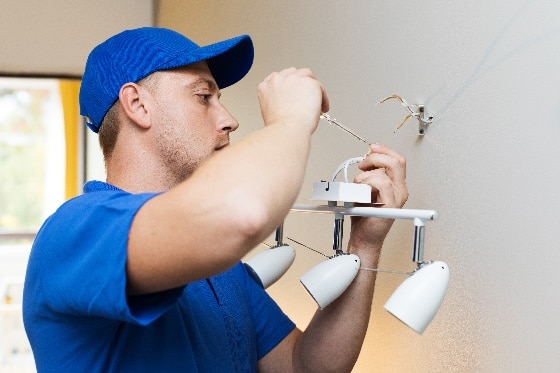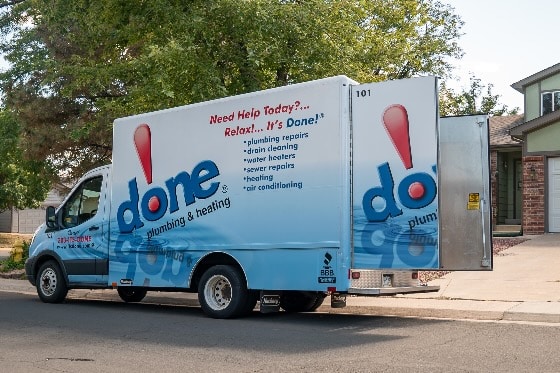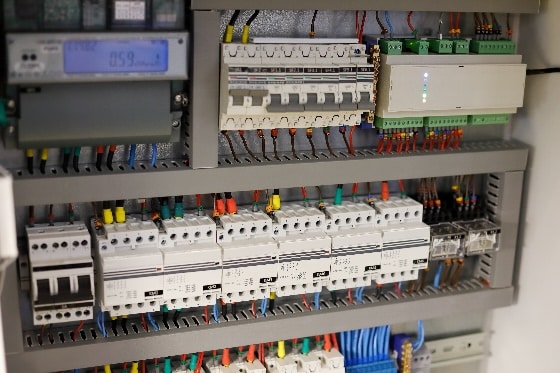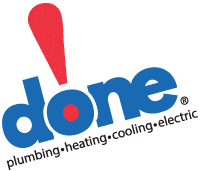Don’t Let A Faulty Heater Leave You In The Cold.
Chances are you never think about your water heater, that is, until you find the icy water of Antarctica pouring out of your shower head. We’ve all been enjoying a nice, warm, relaxing shower when bam, our water heater runs out of the good stuff. The only thing left to do is suffer through the icy embrace of tap water.
If your water heater is no longer keeping up with the demand of your household, then it’s time to find one that will. The only problem is, where do you start looking for a new water heater? Unfortunately, the world of water heaters can be exceedingly complicated for what is essentially a metal tank with a fire that heats it.
Not to worry! The expert plumbers of Done! Plumbing, Heating, Cooling, and Electric are here to guide you through the nonsense and help you find the water heater that best fits your needs.
Considerations for a New Water Heater
With proper care and maintenance, new water heaters can deliver reliable service for a decade or more, which means that once you have your new one, you’ll be set for years to come.
Your New Heater Should Be Able To Keep Up With Your Water Usage
When choosing a new water heater, the first thing to consider is its capacity for producing hot water. If you’re only heating water for a single person, yourself, then you may be better off using nothing but the sun’s glorious rays to warm your bathwater(no, seriously). However, families of 6 or more will need a water heater to provide copious amounts of on-demand hot water.
To that end, before selecting a water heater, you will need to determine the amount of hot water your family uses. You can do this by taking the number of people living in your residence and adding 1 to that number. Then take that sum and multiply it by 12. The result is the first-hour rating or the amount of hot water in gallons that a water heater should make during the first hour that a faucet is open.
A tankless(or on-demand) water heater is rated based on the gallons per minute (GPM) that flow from a single faucet. So, first, determine the number of hot water faucets that typically operate simultaneously in your household, and multiply this number by three, the average GPM flow rate of a tap. The result is the heating capacity rating of a tankless unit.
With these few pieces of advice in mind, you should always be able to tell if a water heater can meet the needs of your household.
There Are More Types Of Water Heaters Than You Realize
When it comes to water heaters, there are conventional ones, tankless ones, heaters that use solar energy, heaters that re-purpose your home’s heat to warm water, and even some that draw heat from elsewhere to do their job(more on that later). But, no matter how they do it, all heaters still only have one job, they take water and heat is so that you can soak in a bubble bath without catching hypothermia.
Unless you’re in a unique situation, chances are you will either want to install a conventional or tankless water heater. The former uses fire or an electric coil to heat a massive water tank. The latter does the same, except it does it without the tank.
Conventional water heaters come with a large tank that stores heated water, which requires ample space. Gas models also need additional space for air to circulate the burner unit. Overall, these models are fairly reliable until they inevitably run out of water. Plus, the operating costs of one are much higher than a tankless one.
If you do not have the space to install a traditional model with the correct size storage tank, your best bet is a tankless water heater. This appliance requires less space because it does not store water. Tankless heaters warm water only when a hot water faucet is open. Although more expensive than standard water heaters, tankless units are more energy efficient as they do not continually heat and reheat water in a storage tank.
What Is The Best Power Source For You
Whether you select a water heater with a storage tank or a tankless unit, you will have to decide what energy source it will use to heat the water. Both water heaters can run on electricity, propane, or natural gas. Still, some may be able to run on more, ahem, exotic energy sources.
Solar water heaters, for example, circulate water through pipes that are warmed by the sun before returning it into your home. On the other hand, specific heat pump models can use the constant heat of geothermal energy to heat your water!
Unfortunately, these more eco-friendly(and much cooler) power sources are only available to a select few people. The rest of us have can only pick from what is available to us as public utilities.
Get Your Water Heater Replacement Done With Us
Once you know how much water you use, which water heater best serves your need, and whether or not you can run yours on volcano power, it’s time to choose a heater. If you’re still unsure which make and model is best for you, call Done! Plumbing, and get the best advice from the professionals.

